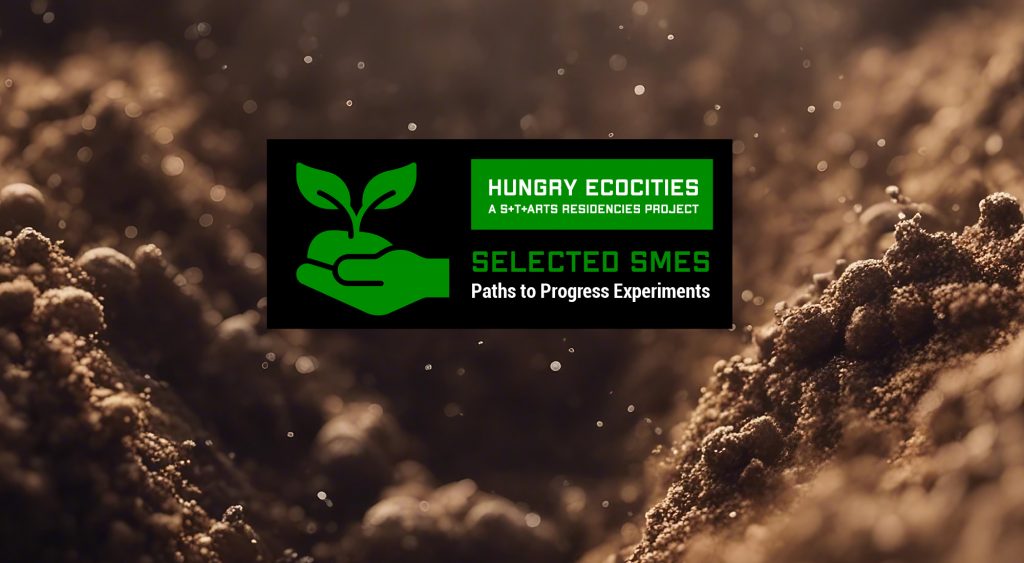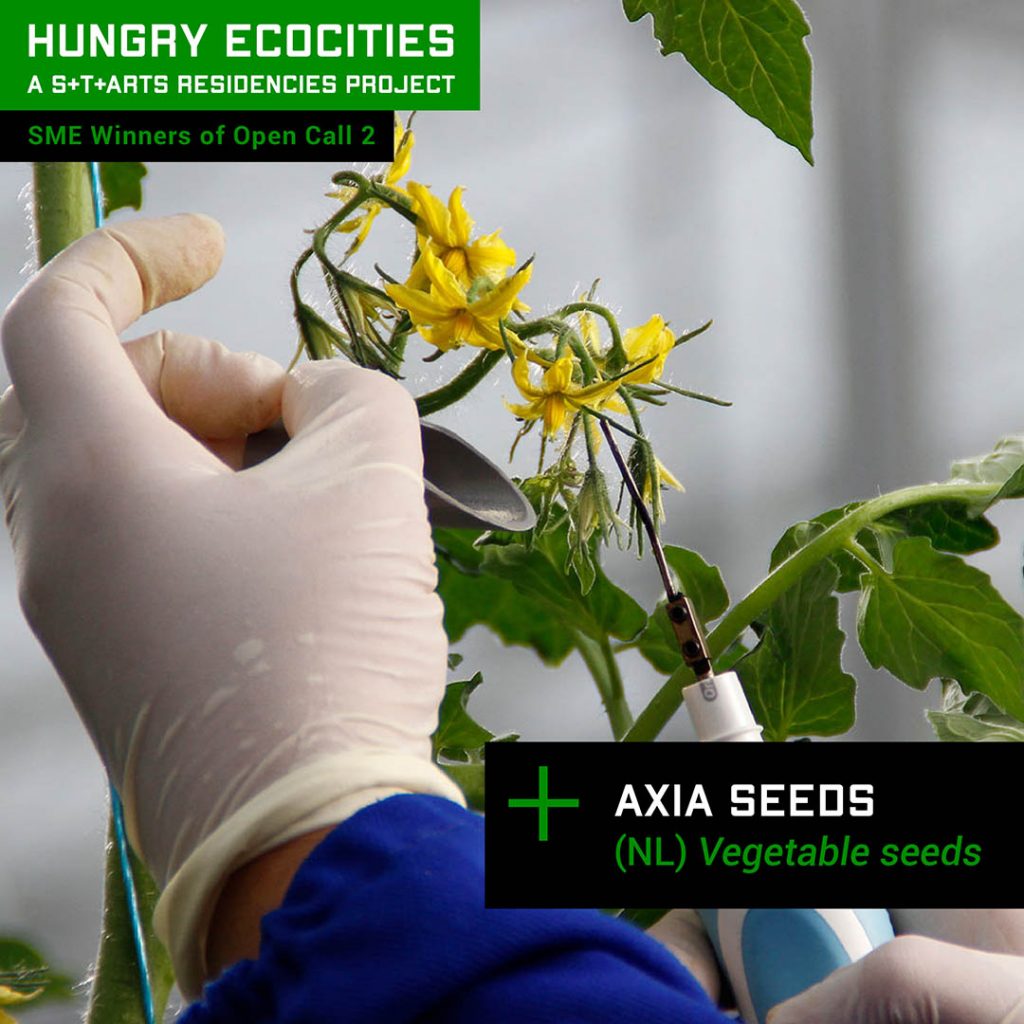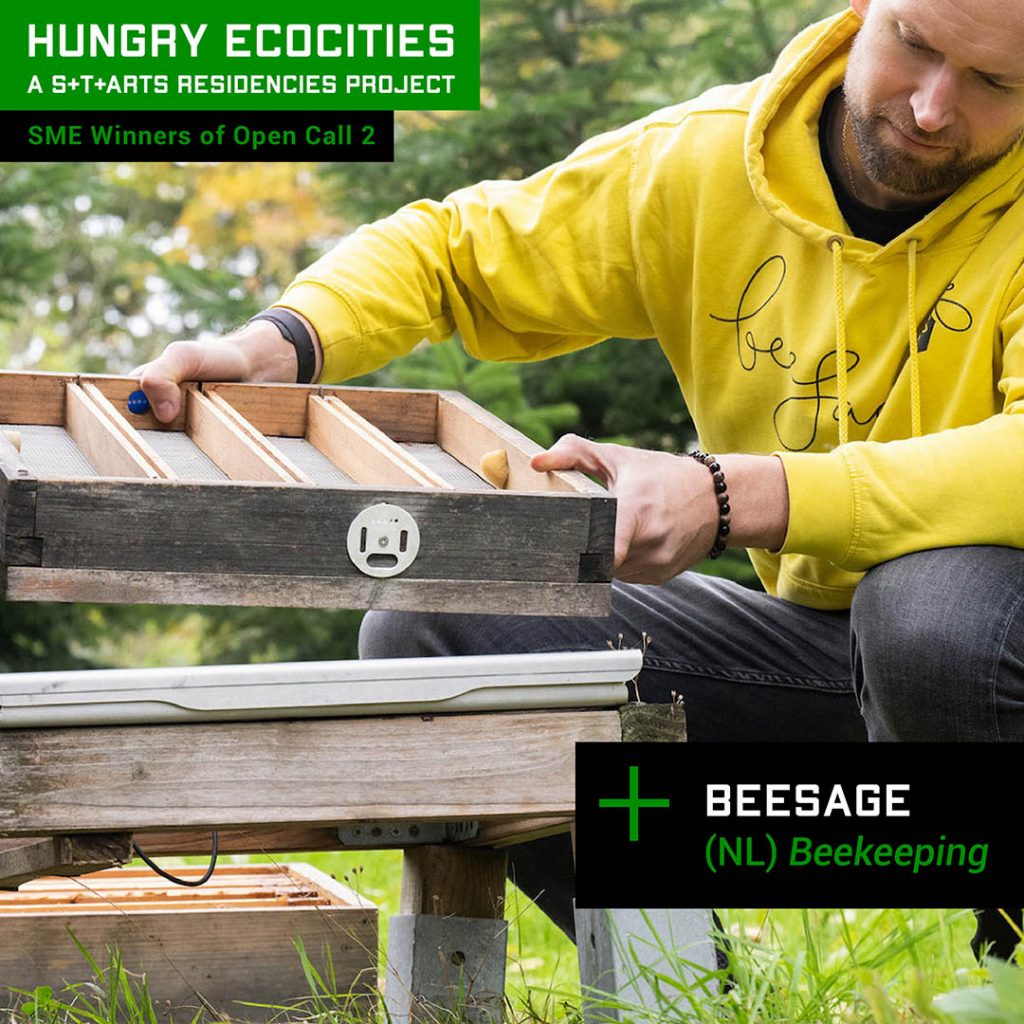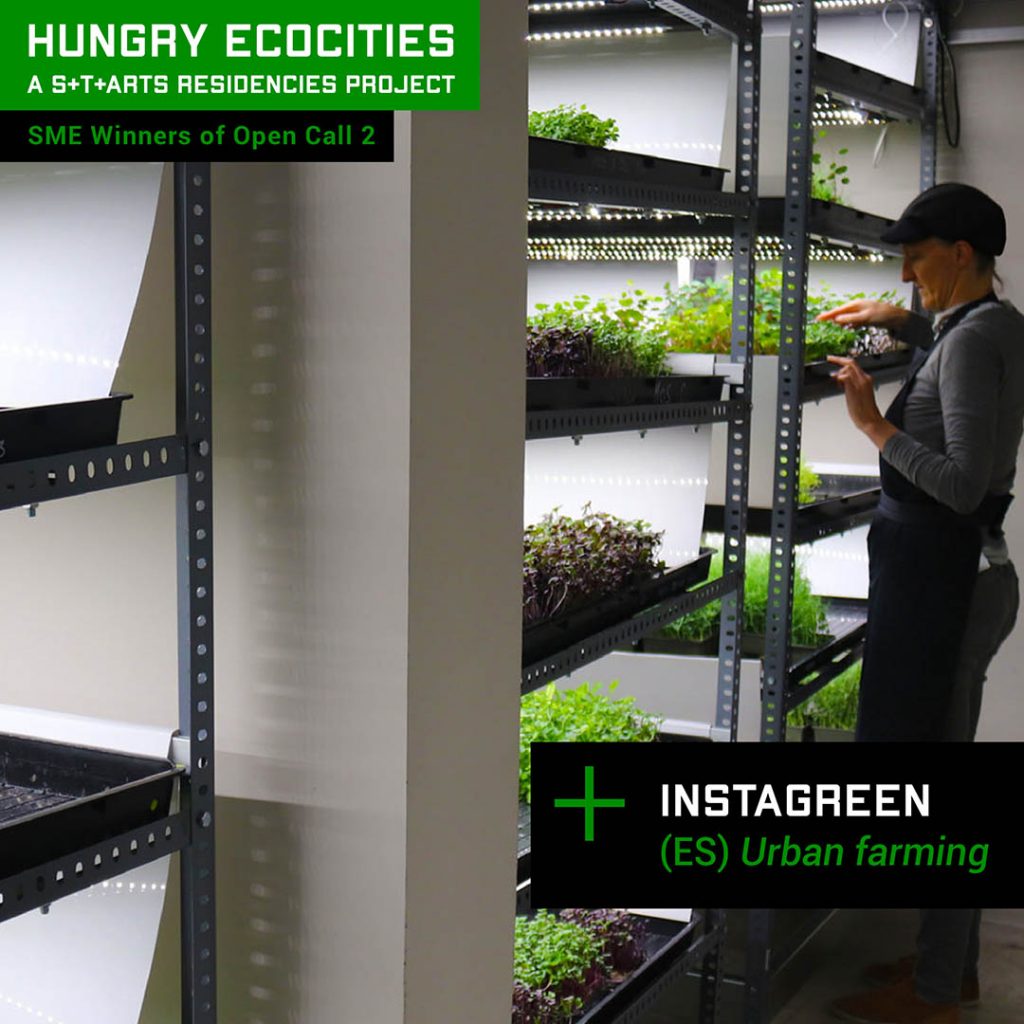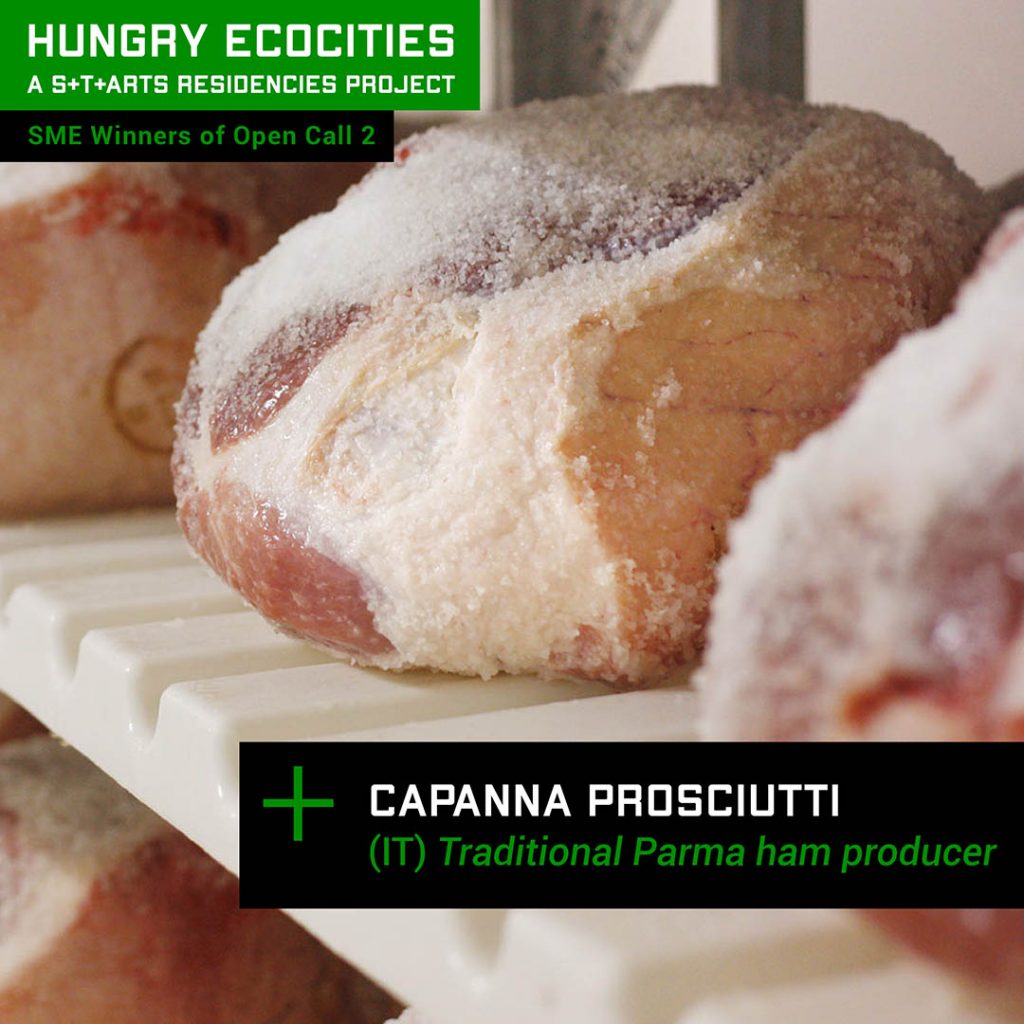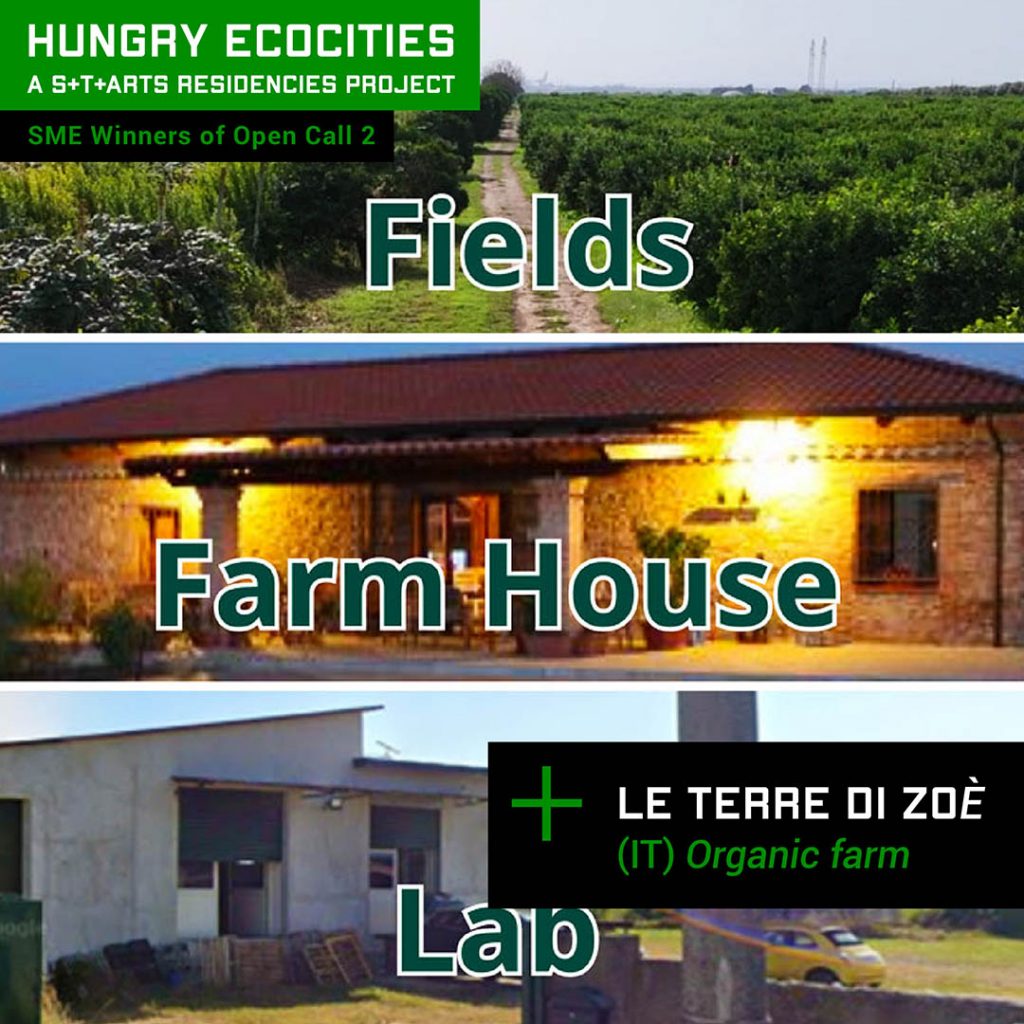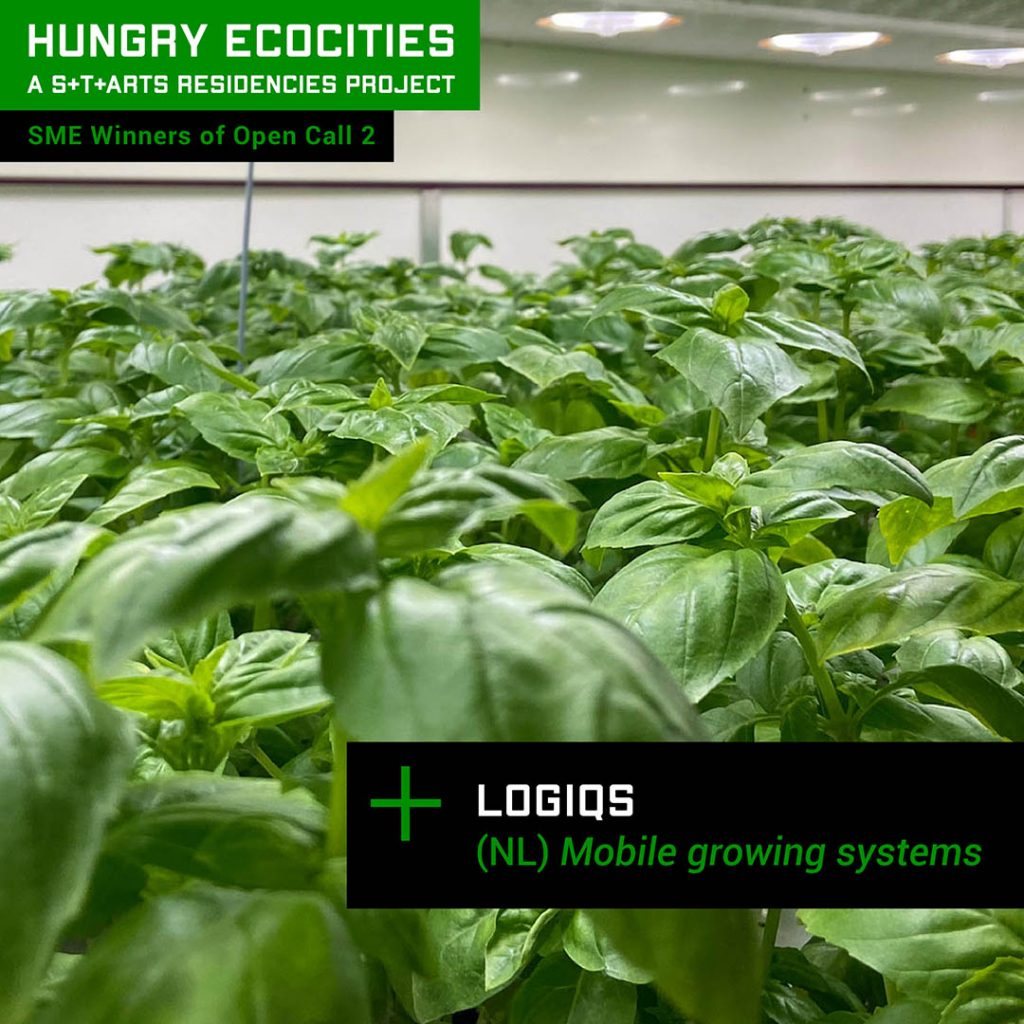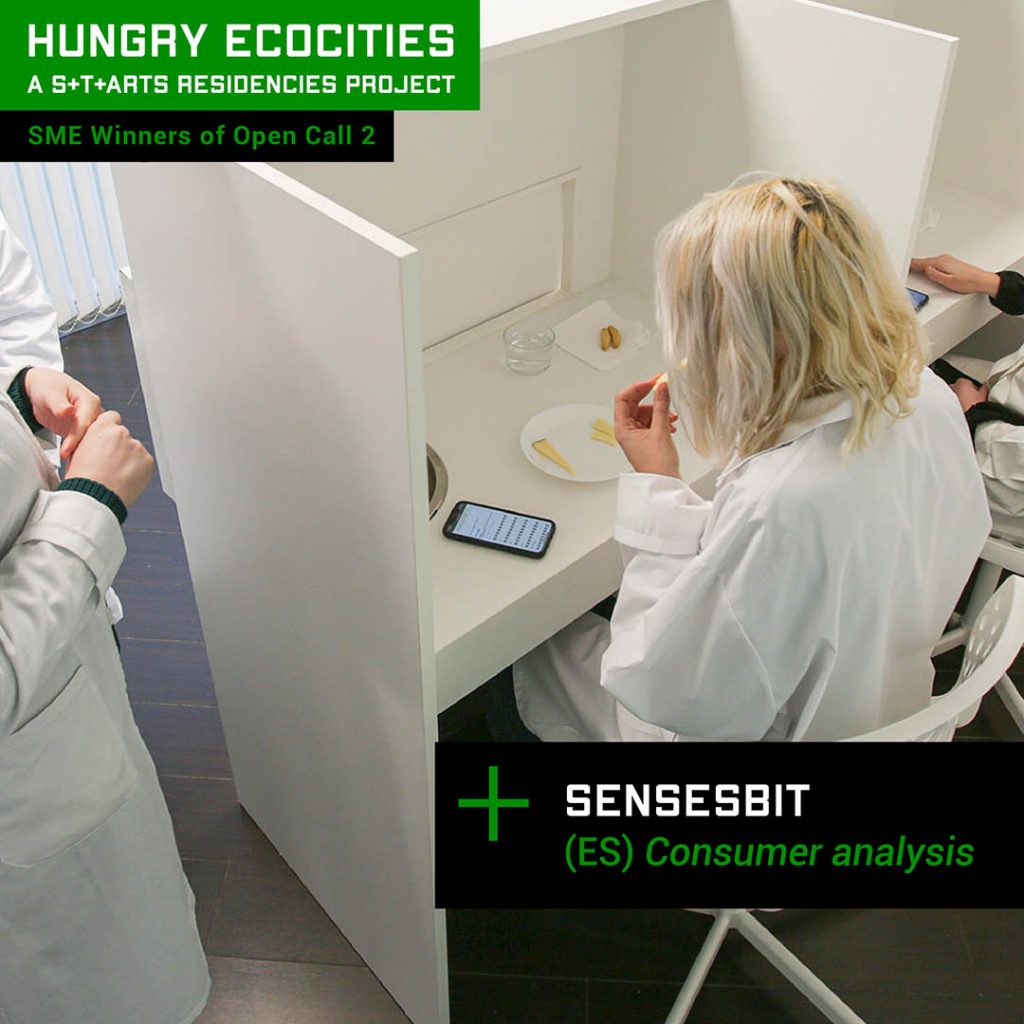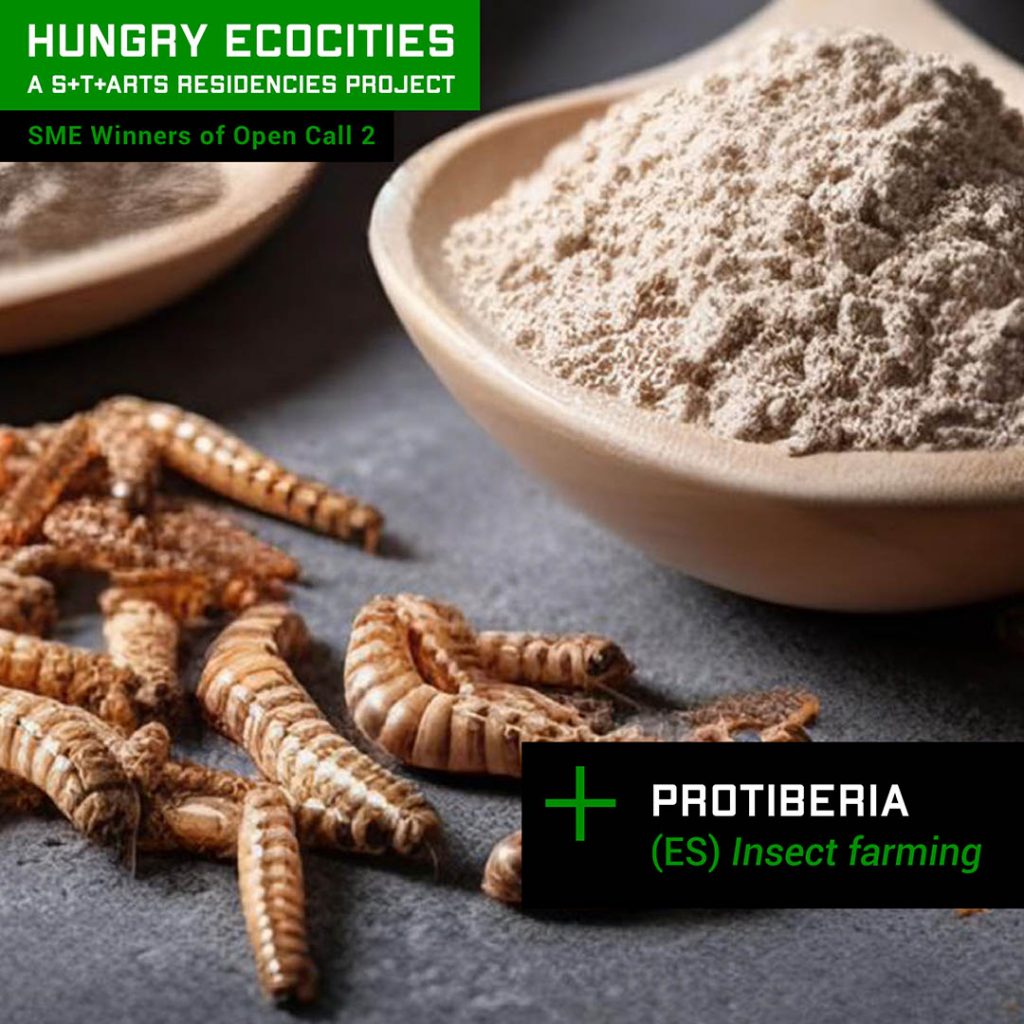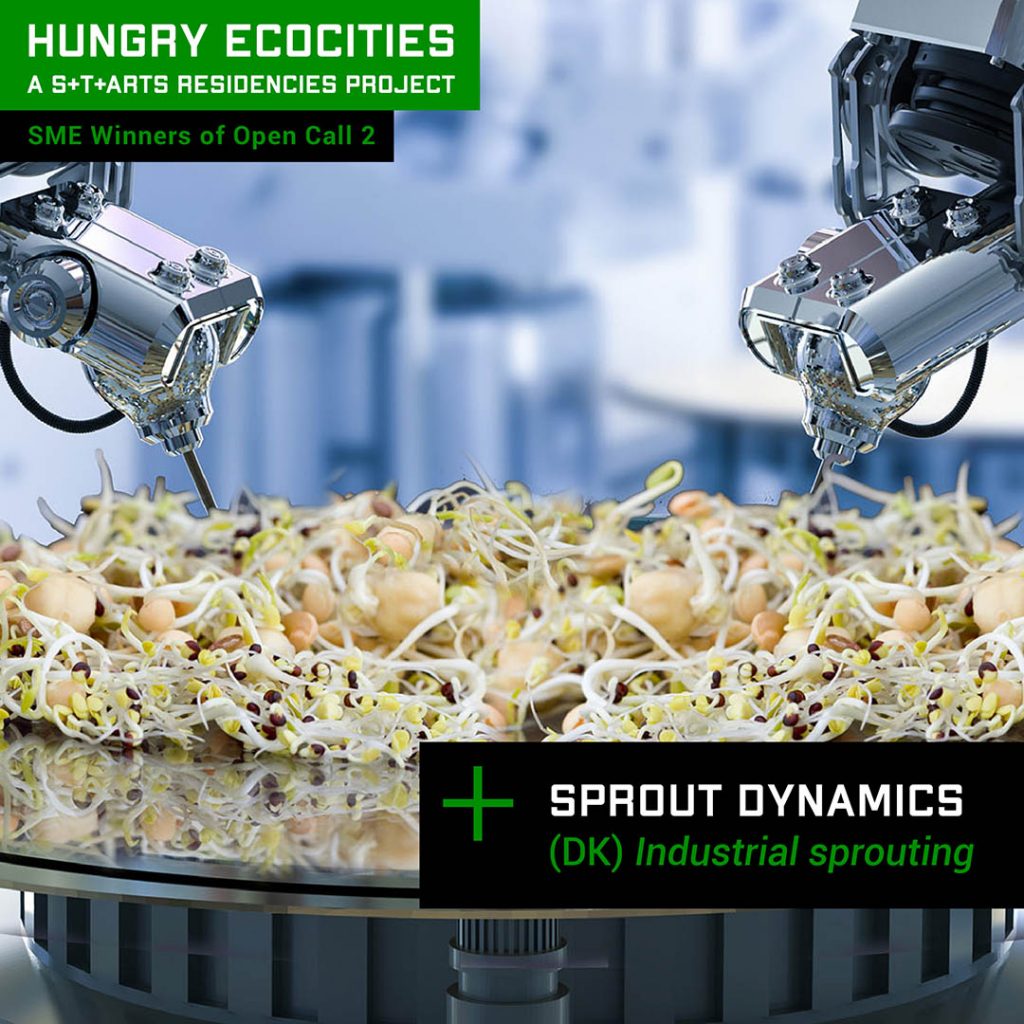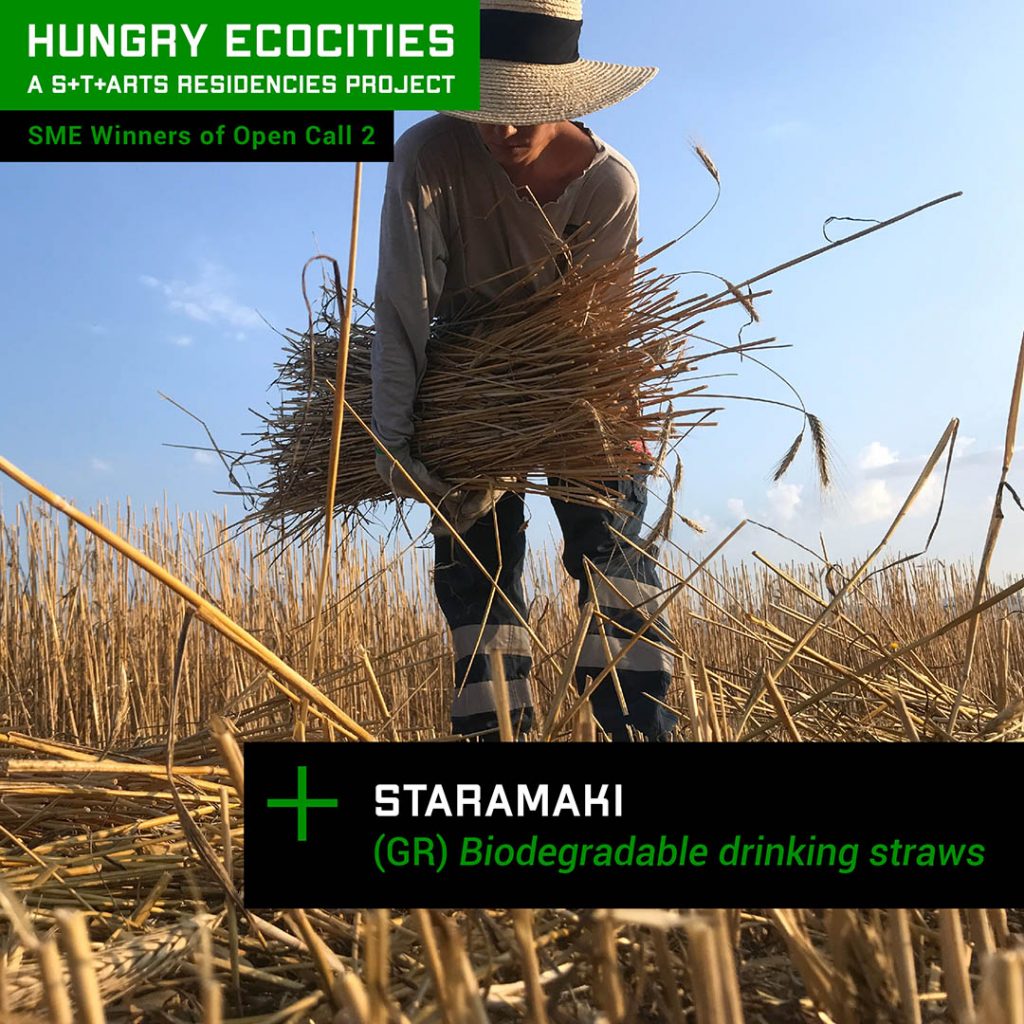Paths to Progress Experiments: Introducing the 10 SMEs – Winners of Hungry EcoCities’ 2nd Open Call
In a world grappling with the dual challenges of rapid urbanization and climate change, the need for innovative, sustainable food systems has never been more critical. Enter Hungry EcoCities, an initiative that stands at the intersection of art, technology, and ethical food practices.
This pioneering project is set to redefine the future of food production and consumption, leveraging the power of creativity and artificial intelligence to address some of the most pressing issues in our global food chain.
In this article:
The winning SMEs
We invited Small and Medium-sized Enterprises (SMEs), including start-ups, active in the food chain, with an interest in contributing to the Hungry EcoCities goal towards a more healthy, sustainable, responsible and affordable agri-food system process to submit an application for this Open Call.
Today, we are thrilled to announce the selection of 10 exceptional Small and Medium-sized Enterprises (SMEs) as winners of Hungry EcoCities’ 2nd Open Call. These visionary companies will be at the forefront of developing and testing prototypes that promise to make our food chain more transparent, inclusive, responsible, and sustainable.
The selected SMEs will be joined by artists in the next stages of this Open Call to form teams that will address the challenges posed by the SMEs throughout the support programme, known as Paths to Progress Experiments (PPEs).
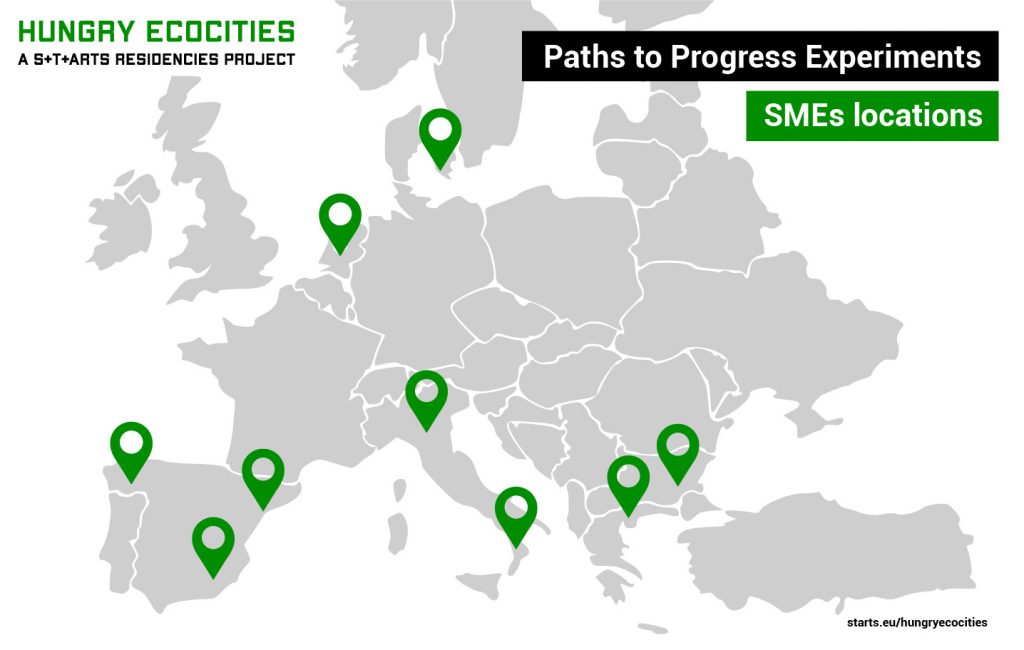
These SMEs represent a diverse cross-section of the agri-food sector and value chain. The 10 SMEs operate across various sub-sectors, including seed breeding, urban farming, traditional food processing, waste upcycling, organic farming, beekeeping, controlled environment agriculture, sensory analysis, insect biotechnology, and sprouting technology.

+ AXIA SEEDS
(Naaldwijk, Netherlands)
Pioneering vegetable seed breeding for protected crops.

+ BEESAGE
(The Hague, Netherlands)
Empowering data-driven beekeeping for improved productivity.

+ CAPANNA PROSCIUTTI
(Parma, Italy)
Preserving traditional Italian ham-making while embracing innovation.

+ INSTAGREEN
(Barcelona, Spain)
Revolutionizing urban farming with modular hydroponic systems.
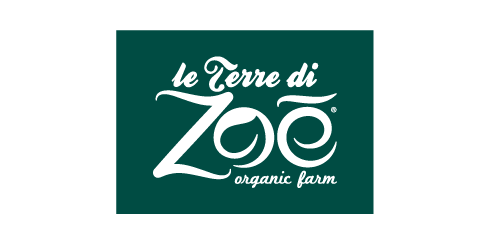
+ LE TERRE DI ZOÈ
(Calabria, Italy)
Blending organic farming traditions with multifunctional business approaches.
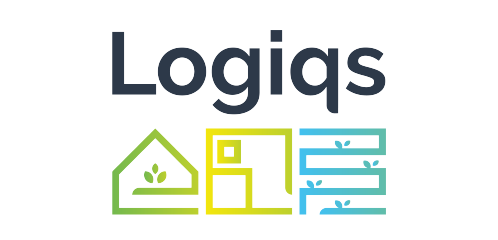
+ LOGIQS
(Maasdijk, Netherlands)
Developing advanced mobile growing systems for controlled environments.

+ PROTIBERIA
(Albacete, Spain)
Converting organic waste into agri-food ingredients using insect biotechnology.

+ SENSESBIT
(Lugo, Spain)
Analyzing consumer perception using AI-powered sensory technology.

+ SPROUT DYNAMICS
(Denmark & Bulgaria)
Innovating industrial sprouting technology for B2B ingredients.
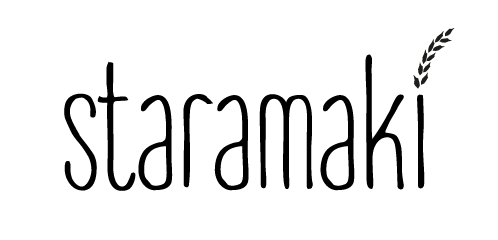
+ STARAMAKI
(Kilkis, Greece)
Transforming agricultural waste into biodegradable drinking straws.
Themes and trends
Our 10 innovative SMEs offer a fascinating glimpse into the potential future of food production and consumption. Their diverse approaches and solutions paint a picture of an agri-food sector in the midst of profound transformations, driven by the necessity for sustainability, efficiency, and resilience in the face of global challenges.
At the heart of this transformation is a much needed emphasis on circular economy principles. At the SMEs that work our European soils we’re seeing a shift away from linear “take-make-dispose” models towards systems that maximize resource utilization, regeneration and minimize waste. This is exemplified, for example, by companies finding ingenious ways to upcycle agricultural by-products, turning what was once considered waste into valuable resources.
Simultaneously, the rise of urban farming solutions is addressing the challenges of food production in densely populated cities. These innovations are not just about bringing fresh produce closer to people; they’re about reimagining the very notion of farming in space-constrained urban environments that require enormous amounts of food on a daily basis to feed the city and its surroundings.
Another notable trend is the harmonious blending of tradition with cutting-edge innovation. We’re witnessing a revival of seasonality honoured food production methods, now enhanced by modern technological advancements. This synthesis preserves cultural heritage while improving efficiency and sustainability. We’re also seeing a trend towards multifunctional farming approaches that go beyond mere food production. These holistic models integrate education, tourism, and community engagement, fostering a deeper connection between consumers and the sources of their food.
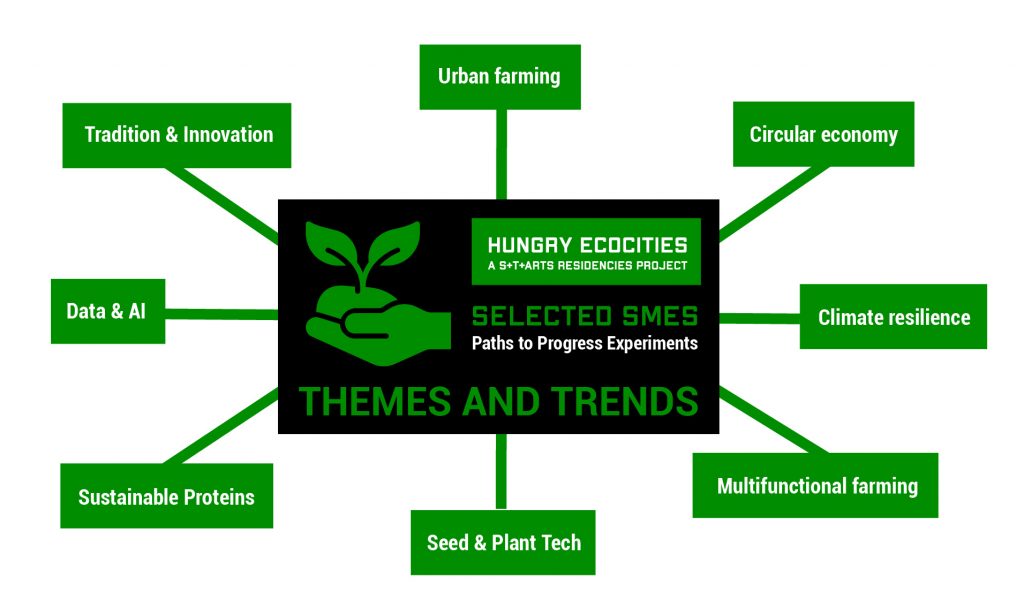
It is no surprise that the role of data and artificial intelligence in agriculture is becoming increasingly prominent. From optimizing crop yields to understanding consumer preferences, AI-driven solutions are providing unprecedented insights and efficiencies across the entire food value chain, due to its recent developments. In response to environmental concerns and changing consumer preferences, there’s a growing focus on developing sustainable protein sources. This includes exploring novel ingredients that can meet nutritional needs while reducing environmental impact.
Underpinning all these innovations is a growing emphasis on climate resilience. As the effects of climate change become more profound, the agri-food sector is in need of solutions designed to cope in unpredictable and challenging environmental conditions.
The requested innovation areas brought forth by our 10 selected SMEs paint a vivid picture of the future of European food systems.
In the Paths-to-Progress experiments of Hungry Ecocities, we explore the potential of vertical gardens in bustling cities, providing fresh produce merely steps away from consumers’ plates. Additionally, we look at rural areas to transform agricultural waste into eco-friendly products, closing loops in the production cycle while offering deprived regions new futures. We turn to data-driven approaches ensuring healthier bee populations and more sustainable pollination. We blend centuries-old traditions with cutting-edge technology, exploring how cultural heritage and innovation can coexist deliciously. Meanwhile, insect proteins offer a glimpse into alternative, sustainable nutrition sources that could reshape our diets. The food areas our SMEs play a role in are not just concepts but tangible steps towards a food system that nourishes both people and planet. They embody the vision of climate-smart, resource-efficient, and community-empowering food production that European policies aim to achieve.
These experiment lines align closely with the EU’s Food 2030 policy framework, addressing key priorities such as nutrition, sustainability, circularity, and innovation in food systems. Through these diverse approaches, Hungry EcoCities will cultivate a fertile ground for a resilient and inclusive food future, where technology and tradition, urban and rural, all play crucial roles in feeding tomorrow’s Europe.
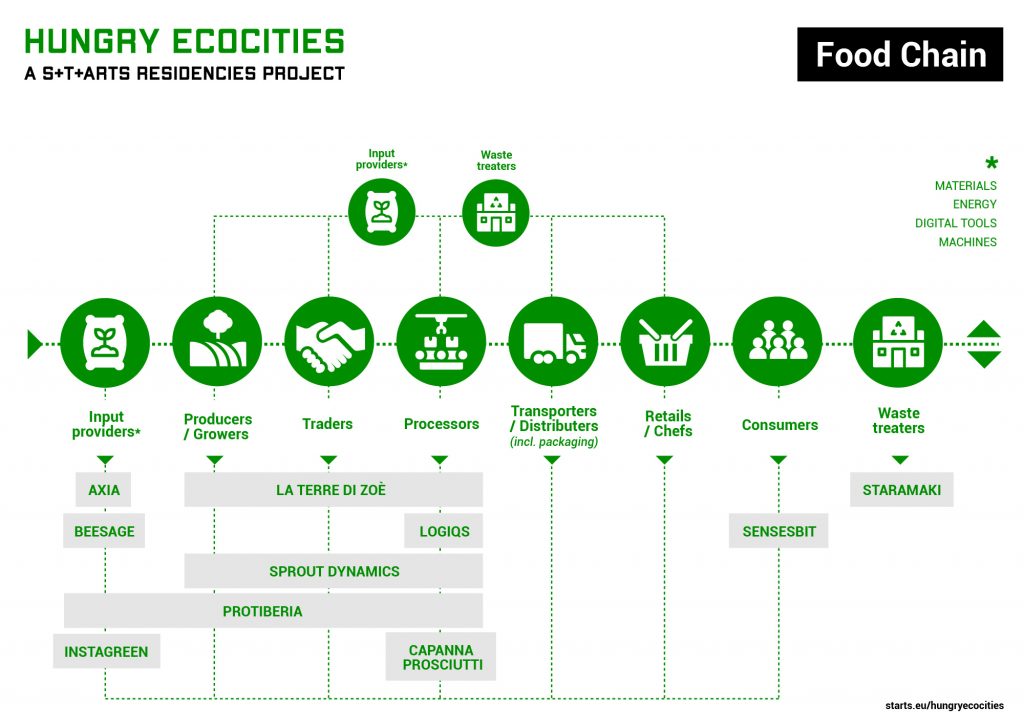
Our NEXT STEPS
The 10 winning SMEs are now set to embark on an exciting journey as part of the Hungry EcoCities initiative. We started with kick-offs to understand their challenges and opportunity. In the next phase, they will be paired with artists to form dynamic teams that will tackle the challenges posed by the SMEs through the support programme known as Paths to Progress Experiments (PPEs).
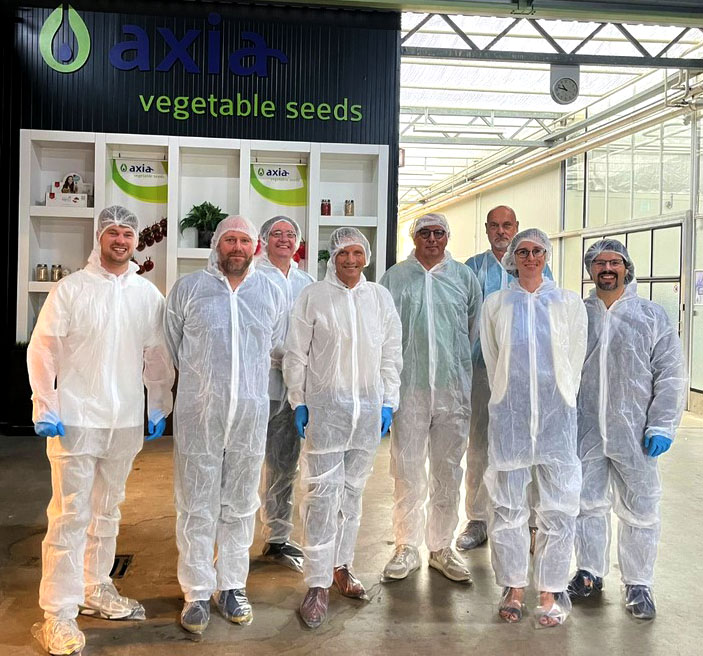
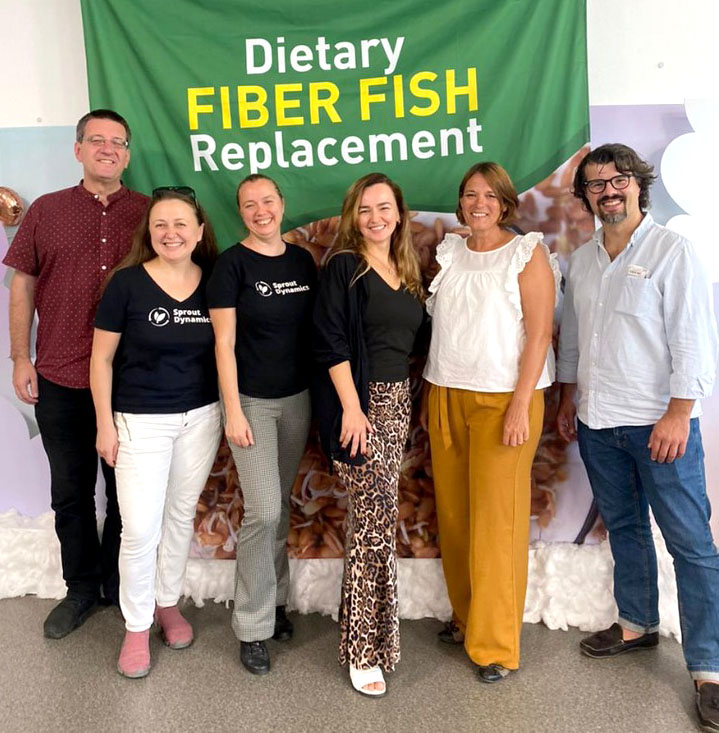
The opportunities and challenges identified by these SMEs are being matched on the HEClab platform with prototypes proposed by a new cohort of artists. By fostering these interdisciplinary partnerships, Hungry EcoCities aims to create a fertile ground for innovation that goes beyond traditional R&D approaches. By bringing together diverse perspectives and skill sets, we are laying the groundwork for a food system that is not only more efficient and sustainable but also more equitable and inspiring.
This blend of artistic vision and technological expertise has the potential to produce solutions that are not only effective but also deeply resonate with consumers and stakeholders across the food chain.
We invite you to follow the progress of these 10 innovative SMEs as we embark on this transformative journey. Together, we are not just reimagining our food systems but actively shaping the future of how we grow, distribute, and consume food in an increasingly complex world.
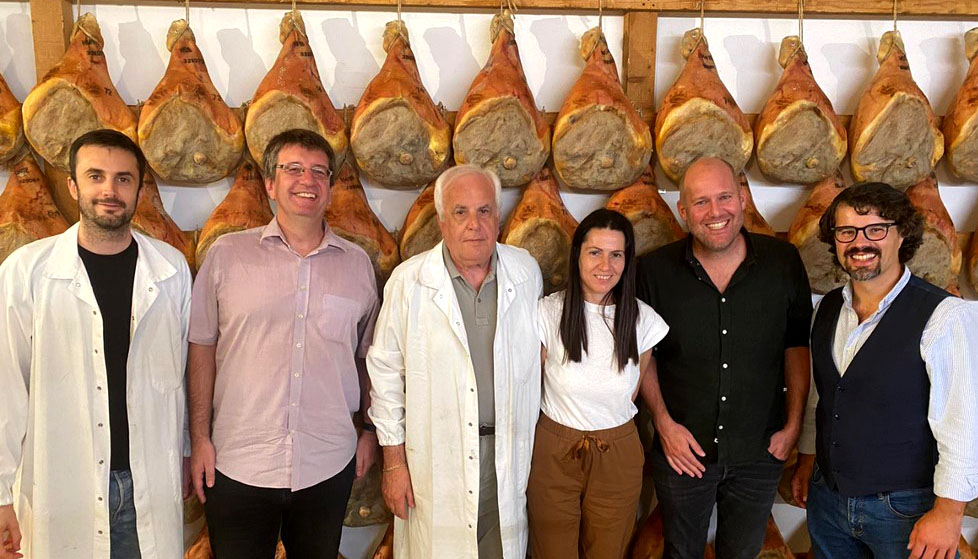
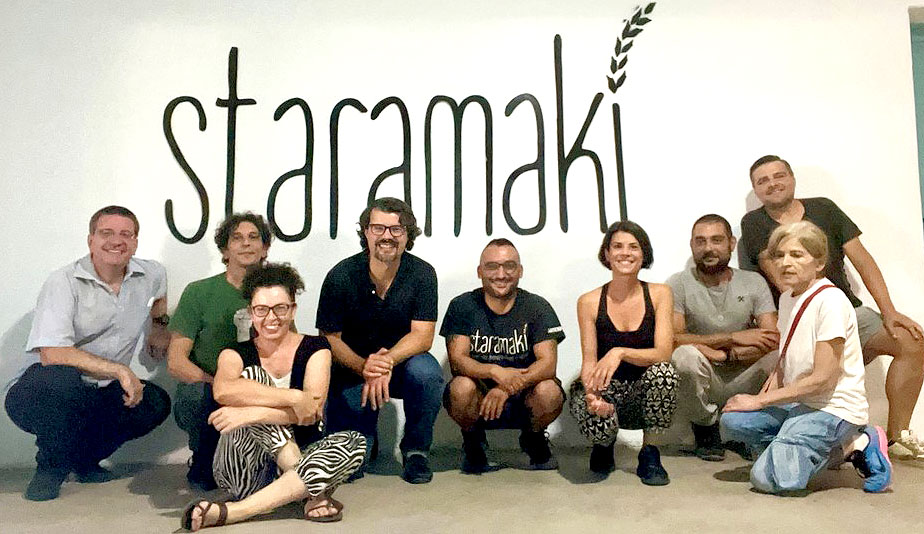
The Evaluation Process
The final beneficiaries were selected from 45 applications submitted by participants from over 20 countries. The evaluation process was conducted by a mix of internal and external evaluators and eventually selected by the jury, consisting of consortium partners.
The selection criteria were particularly focused on motivation to contribute to food system change, fit with the Hungry EcoCities ambitions and testing goals, and environmental considerations.
Motivation played a crucial role, with evaluators looking for a strong drive to work in a multidisciplinary team, a passion for addressing innovative, technology-based challenges, and a commitment to advancing the goals of both the EU and the Hungry EcoCities initiative, especially in the area of sustainable food systems.
Another key factor was how well the proposed solutions aligned with the scope and objectives of Hungry EcoCities. This included evaluating the relevance of the challenges or problems to the food value chain and how effectively they could be tackled within the framework of the project.
Environmental feasibility was also carefully considered, including the suitability of the test environment and the capabilities of the proposed teams.
The results were then analyzed and discussed by the consortium partners.
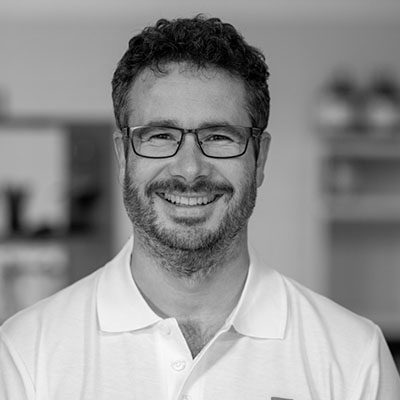
It was so thrilling to evaluate these small businesses! It is so great to see that they are now “on board,” so to speak, with HEC. With their scalable high-tech and smart solutions to some of the big challenges in biotech, they are making a real impact in this area. I can’t wait to see how their involvement will help to make them an even bigger impact and ensure long-term success!
Dalibor Huska – Mendel Unversity
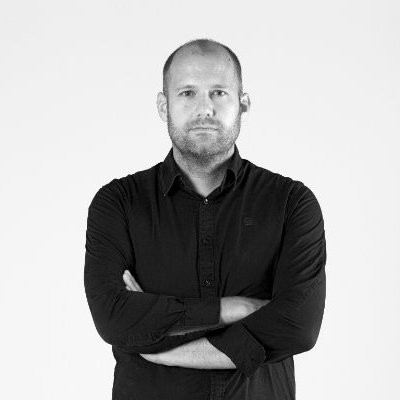
Mixing art, design, science and SME’s holds an often-overlooked potential for sparking genuine creativity. When they are suspended from their usual obligations and crowds it promises productive cross-fertilization by learning and doing from and with each other.
Stephan Petermann – EatThis

With this application process, we searched for SMEs that would provide a thrilling glimpse into the future of agrifood innovation and consumer engagement. It´s already inspiring to engage with these curiosity-driven SMEs and explore how they will enable the blend of art and cutting-edge technology with their work and tradition. The enthusiasm and dedication these SMEs bring to their fields will definitely make this a meaningful experience, highlighting the potential for real-world impact through art-driven collaborations.
Anca Marin- Funding Box
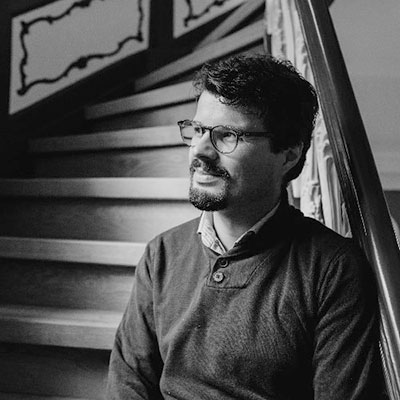
Transforming the European food system happens on the grounds, in the regions of Europe, by small food companies. Although often overlooked or difficult to reach, I am proud that so many of them found their way to our program. Now we have a chance, through multidisciplinary work, to take a step forward towards a better food system, for real.
Rodolfo Groenewoud – van Vliet – In4Art
About Hungry EcoCities
Hungry EcoCities will host 19 S+T+ARTS residencies to work towards defining, designing, and developing AI-enabled responsible, art-driven solutions for the end-users in the agri-food industries.
The project aims to harness the power of creativity and AI to revolutionize the food industry and address the challenges of urbanization and climate change by teaming up studios, universities, technological research experts, growers, agricultural specialists, artists and creative thinkers to come up with new ideas for the future food system.
In the first Open Call for proposals (2023-2024), the project consortium has selected only artists to collaborate and participate in the “Humanizing Technology Experiments” linked to one of three directions for experimentation: Mega Scale, Local Conditions, or City+Farming Synergies. The aim was to delve into digital inquiries by combining technology and art to achieve agri-food (AI) usability outcomes. All outcomes can be found here.
The second Open Call (2024) focused on “Paths-to-progress Experiments”, where SMEs from the agri-food sector and artists will jointly work towards prototypes and awareness-raising artworks. The outcomes should make the food chain more transparent, inclusive and sustainable, build connections between different stakeholders in the food chain and promote more informed and sustainable consumption patterns.
This project has received funding from the European Union’s Horizon Europe research and innovation programme under grant agreement 101069990.
